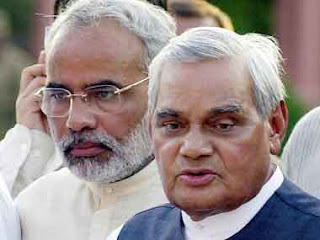तुमसे पहले जो इक शख्स यहां तख्तनशीं था//
उसे भी अपने खुदा होने का इतना ही यकीं था..
'हबीब जालिब'
उसे भी अपने खुदा होने का इतना ही यकीं था..
'हबीब जालिब'
After the demise of corrupt govt in 2014, the BJP came to power with resounding victory on the back of hopes and aspirations of millions of Indians who voted for BJP. There were multiple factors like corruption, arrogance, pseudo secularism that led to the undoing of Congress led govt . People read the script narrated by BJP favorably and voted in mass to decimate UPA. One block that stood for BJP throughout testing times was middle class, and it emerged as strong loyal base . There was hope among middle class that the new dispensation at the center would be economically beneficial, but after four years of BJP rule it seems hope is beginning to wear a bit thin now. The disappointment among these loyal support base isn’t ideological rather it is economical.
Starting on robust ground, the enthusiasm of the newly elected govt. was a welcome relief from the erstwhile paralyzed governance that compromised on major policy decisions. To its credit BJP govt initiated several steps to gain vital investor confidence swelling the coffers of govt, upsurge in Sensex testified it, further increasing the stature and confidence of govt all around. In its zeal to unleash reforms, many radical moves have been attempted and measured on a scale of sheer boldness, they were impressive. The problem is many of these policies have been ill conceived, inadequately debated or pondered over and badly implemented. Demonetisation, GST, wiped out lakhs of jobs in the primary sector where bulk of unskilled and semiskilled workers were employed. Although the reforms were necessary, yet no one can argue these were hasty half baked measures. Thankfully the negative impact of such measures are waning fast as evident from GDP projections but not without shaking the confidence of formidable loyal block.
The middle class is facing the onslaught of reduced job opportunities in manufacturing sector which is shying away from initiating new projects. The proverbial saviour- service sector is already stretched and has since witnessed muted job growth. The jobs in government and agriculture sector are already contracting. No wonder then the staunch supporters are lately disillusioned with economic policy of the govt. The expectations of relief in budget were dashed again when the demand of IT exemption being raised to 5 lakhs wasn't met rather introducing Long Term Capital Gains tax added insult to injury. With small savings schemes of the government giving dismal returns, addition of 10% tax on mutual funds is woefully wrong decision that too at the worse timing possible. This economic harakiri adopted by govt has alienated large number of even Modi admirers not to forget party supporters as well.
The political headwinds for BJP are strong as is witnessed in recently concluded Gujrat elections where sizeable population voted for NOTA. Warning bells should be ringing not stop after Rajasthan by-poll result debacle for the BJP . While the social welfare schemes to support poverty stricken has struck chord with middle class and they wholeheartedly approved govt initiatives, but in its frenzy to become messiah of poor, the message seems to have been given out of abandoning this section. BJP appears to have become complacent and is relying on scattered opposition and TINA(there is no alternative) factor to swim across in 2019 . The over confidence smashed Vajpayee govt hopes to be reelected in 2004, the incumbent govt appears to be heading in same direction.
The need of the hour is the prompt action by govt to calm down tempers of salaried class and take measures to assuage the feeling of 'let down' . If the BJP govt remains unperturbed to popular sentiments of its loyal supporters, it should buckle up to stare at nasty surprise in 2019.
















